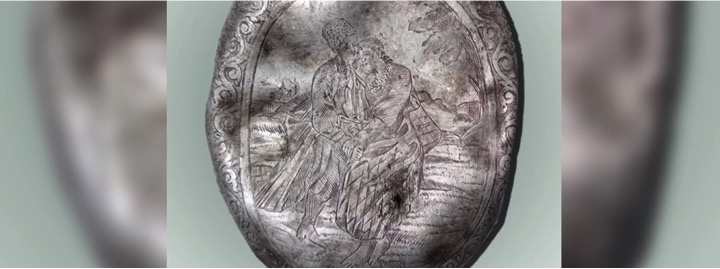
Everyone knows someone who has been affected by war. Whether it be grandparents, friends serving in the armed forces, or relatives abroad.
This weekend, the country will be coming to a standstill at 11am on Sunday to remember those who lost their lives in times of war – both in conflicts of the past and in the many war-torn areas of the world today.
We thought it fitting, therefore, to remember those who have fallen through an engraving.
Over 100 years ago, a captive Russian soldier engraved a scene of two people snuggling together on an aluminium water bottle.
The canteen was found in Czersk, a part of modern-day Poland.
It was the site of a German prisoner-of-war camp, where an estimated 1,200 captives died in 1918 alone.
Despite being buried for almost a century in wet and sticky mud, the engraving has lived on to be a remarkable reminder of such dark times that went before.
The origins of the scene are not entirely known. It could be a sentimental memory depicting the owner and his sweetheart.
Unfortunately, it is unlikely that the person who created this delicate engraving lived beyond his time in the camp.
Epidemics of typhus and Spanish flu were common, with the belongings of the dead quickly disposed of as they were considered contaminated.
Today, we can only guess as to who the people are in the engraved motif and what their story was – their story being just one amongst the millions of others that were touched by war.
At least a small part of the essence of their memory lives on through the engraving.
Where flesh and blood returns to nature, an engraving is enduring. Having survived for almost a century in wet and sticky mud, the engraving is still resplendent and with all the life as when it was first delicately created by its owner.
So thank you to the engraver for helping us to remember those who gave the ultimate in times of war, and for making us appreciate our own lives today.